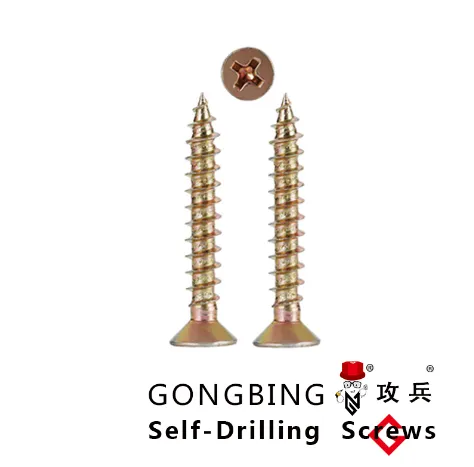mar . 04, 2025 09:50
Reen al listo
Altkvalita Fabriko Provizo Kojna Ankora Bolt
Chemical anchor bolts are an integral component in the construction and engineering industries, offering robust solutions for heavy-duty applications. As a structural fastening method, these bolts utilize a chemical bonding process to secure threaded rods, reinforcing bars, or bolts into drilled holes in masonry substrates. This article delves into the world of chemical anchor bolts, providing insights into their applications, benefits, and the expertise required to effectively use them.
Professionals using chemical anchor bolts must also be adept in proper hole preparation and cleaning processes. Any dust or debris in the drilled hole can significantly reduce the bond's effectiveness. It is crucial to use the appropriate drill diameter and embedment depth specific to the bolt and resin manufacturer's specifications. This guarantees the adhesive can perform as designed, providing maximum pullout resistance. The authority of chemical anchors extends to diverse construction scenarios, encompassing everything from retrofitting historical buildings to erecting modern skyscrapers. In seismic areas, their ability to absorb and dissipate seismic energy makes them indispensable in earthquake-resistant construction. Fire resistance is another critical aspect when choosing chemical anchors, ensuring they maintain integrity under extreme temperatures. Trust in the use of chemical anchor bolts comes from rigorous testing and certification by industry standards such as the European Technical Approval (ETA) or American Concrete Institute (ACI) standards. Adherence to these standards provides assurance of quality and reliability, offering peace of mind to engineers and builders alike. In summary, the strategic application of chemical anchor bolts is a testament to their engineering prowess. Their non-invasive bonding method preserves the substrate's integrity while offering versatile and robust solutions in challenging conditions. Mastery in selecting the appropriate resin, understanding environmental impacts, and ensuring meticulous installation are cornerstone elements that underline their effectiveness. As a product, chemical anchor bolts are an exemplary choice for projects demanding high safety margins and enduring performance.


Professionals using chemical anchor bolts must also be adept in proper hole preparation and cleaning processes. Any dust or debris in the drilled hole can significantly reduce the bond's effectiveness. It is crucial to use the appropriate drill diameter and embedment depth specific to the bolt and resin manufacturer's specifications. This guarantees the adhesive can perform as designed, providing maximum pullout resistance. The authority of chemical anchors extends to diverse construction scenarios, encompassing everything from retrofitting historical buildings to erecting modern skyscrapers. In seismic areas, their ability to absorb and dissipate seismic energy makes them indispensable in earthquake-resistant construction. Fire resistance is another critical aspect when choosing chemical anchors, ensuring they maintain integrity under extreme temperatures. Trust in the use of chemical anchor bolts comes from rigorous testing and certification by industry standards such as the European Technical Approval (ETA) or American Concrete Institute (ACI) standards. Adherence to these standards provides assurance of quality and reliability, offering peace of mind to engineers and builders alike. In summary, the strategic application of chemical anchor bolts is a testament to their engineering prowess. Their non-invasive bonding method preserves the substrate's integrity while offering versatile and robust solutions in challenging conditions. Mastery in selecting the appropriate resin, understanding environmental impacts, and ensuring meticulous installation are cornerstone elements that underline their effectiveness. As a product, chemical anchor bolts are an exemplary choice for projects demanding high safety margins and enduring performance.
Lastaj novaĵoj
-
Weatherproof Plastic Expansion Anchors for OutdoorNovaĵojJun.06,2025
-
Sustainability in the Supply Chain: Eco-Friendly TEK Screws ProductionNovaĵojJun.06,2025
-
Load-Bearing Capacity of External Insulation FixingsNovaĵojJun.06,2025
-
Double Head Bolts: Enhancing Efficiency in Industrial MachineryNovaĵojJun.06,2025
-
Corrosion Resistance in Chipboard Screws: Coatings for Wholesale DurabilityNovaĵojJun.06,2025
-
Butterfly Toggle Bolts : Enhancing Structural ResilienceNovaĵojJun.06,2025
